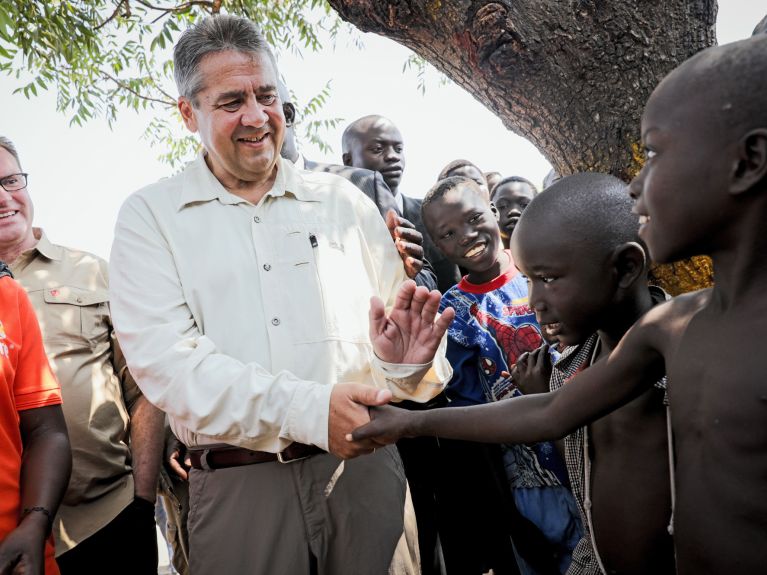Gabriel to visit Uganda
Foreign Minister Sigmar Gabriel is travelling to one of the world’s most important hot spots for refugees.

Uganda is the site of the third largest refugee crisis in the world. Up to 2000 people per day pour across the border to Uganda from South Sudan, fleeing brutal fighting and severe droughts. Uganda urgently needs more support from the international community in order to be able to continue taking in people fleeing from South Sudan. The situation in Uganda shows that the international community must provide support at an early stage so that regional refugee movements do not become global migration crises.
A new approach
Neighbouring countries that help refugees must not be left to cope with the situation on their own. Foreign Minister Gabriel thus wants to encourage a new approach. There must be better coordination of development cooperation and humanitarian assistance for refugees in the future. In particular, development projects must support communities that take in large numbers of refugees so that people in need can continue to find refuge. Germany has already provided over 60 million euros in aid to Uganda this year.
Far beyond the usual talks
But how can one ensure that help arrives where it is most urgently needed for emergency aid and integration? During his visit to Uganda, Gabriel will go far beyond the usual talks with the political elite. The first appointment on the schedule will take the Foreign Minister and his delegation to the heart of the issue when they visit Rhino Camp Refugee Settlement in northern Uganda, currently home to over 50,000 refugees. Gabriel will meet aid workers and refugees in order to gain a first-hand impression of the situation.
Journey to the hub
Gabriel will travel directly from the refugee settlement to the capital Kampala, where he will meet President Museveni. The agenda for their talks will include the human rights situation and freedom of the press. On Thursday, Gabriel and his delegation will travel on to South Sudan, the origin of the conflict.
